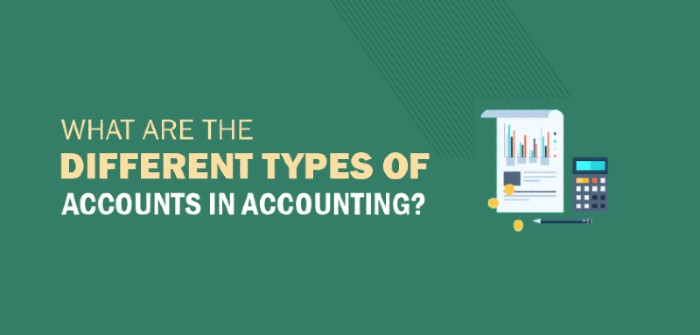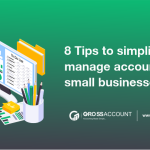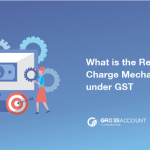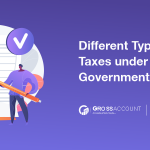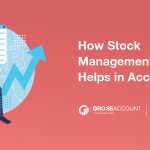Introduction
Till now, the accountants have been following the conventional way of entering , maintaining all the transaction details and records manually in large-sized books. It created havoc when older data was needed to be retrieved and the bunch of pages needed to be flipped to get the data of that particular day, for instance, three years back.
It has not only increased the manual efforts of the accountants but also degraded the efficiency of the performance and efficiency of the accountant, in addition to wasting time on unnecessary flipping of pages.
There is a need for an assistant that can ease the manual efforts of the accountants by making all the calculative processes of storing the transactions an automated process, and hence the need for software for accounting arouse.
The software should calculate all the transactions of the company within a few seconds, and provide efficient and relevant results as and when required. It also means the storage of the previous years’ data should be available. If one wants to retrieve the data of 3 years, just with a few filters added, he should be able to get a complete report of the same.
Even if there is a team of accountants working in a company, maintaining a large number of data manually is impossible these days. Hence,the accounting software will help them in simplifying all the business processes, by carrying out crucial tasks like managing the billing details of the transactions carried out in a particular span, etc.
The major benefits of using accounting software for a company are perfect results, more accuracy, time-saving, reduced cost, improvement in the decision-making process, less frustration for bill payments, tax filing, periodic report generation, etc.
One of the efficient software, Gross Accounts, is specially designed and developed for the professionals like accountants, startup entrepreneurs, business owners, etc., that contains the latest features one can expect from accounting software. One can manage the invoicing and accounting process smoothly. Reminders to collect or release the payments can also be set in the software.
In short, the developers of the software mainly focus on the customers’ approach towards buying the relevant software for their company and provide maximum features possible at the lowest cost possible.
But, before we take a deep dive into what Gross Accounts offer to ease the workload of the accounting professionals of the company, let us discuss the basics of accounting and what the types of accounts available are.
Also See: How Does An Accounting Software Manages Your Sales & Taxes?
What Is Accounting?
The process that records classify, an nd summarizes the transactions of funds in an appropriate and in a manner such that they are interpretable is known to be accounting. One can say the concept of accounting as a mixture of science as well as art.
To manage one’s business operations, whether larger or smaller in size, accounting is a mandatory process as it maintains all the minute details of a business process, and hence managing these procedures becomes an easy task. A professional accountant is one who occupies sound knowledge of all the terminologies and definitions , in addition to the types of accounts available.
Accounting can be useful in planning the annual budget, deciding the options for further investments, determining the annual expenditure and how can one cut the extra cost, etc. Some of the basic tasks of accounting can be handled by a freshman in accounting, where the complex tasks can be handled by an accountant who is a professional and designated as a Certified Public Accountant.
There is a classification among accounting methods, known as Managerial and Cost Accounting, respectively. The managerial accounting team helps the management of the company in taking large business decisions, whereas, the cost accounting team interprets the cost of the business product based on profits and losses incurred previously.
Accounts can be depicted as a systematic arrangement of the company’s transactions for a particular business process. These transactions include the records for a particular client even. Not only for the clients, but these records can be well maintained for intangible things like land, furniture, constructions, etc.
A perfect representation of the account has two columns , or we can say sides, where the left one is known for the Debits and the right one for the Credits, which are denoted as ‘Dr’ and ‘Cr’ respectively.
Accounting is further classified into various types, which you can find in the next section.
Recommended For You: Why Accounting Software Is Important For Your Business?
Types Of Accounting
The area of accounting is classified into eight subcategories, which can be a specialization area of a professional accountant. These categories are discussed further.
1) Financial Accounting
This category records and categorizes all business transactions. Also, most of the data entered would be of the previous year, month, or a week’. It might also help the accountant to provide financial statements like account statements, balance sheets, etc. Also, this category helps to make major financial decisions in the company.
2) Cost Accounting
Considered as a part of Managerial accounting, this is used in companies where there are a large number of inward and outward flows of money. Cost accounting manages the internal transactions of the company, unlike financial accounting. The basic operational procedure in cost accounting is to decide the cost of the manufacturing process, final product, etc. for the company based on the previous financial transactions.
3) Auditing
The Auditing process is further divided into two parts: internal and external auditing. A third party carries out the external auditing to check the financial data of the company, making sure that they are well maintained according to the rules and regulations levied by GAAP.
Internal auditing is an inspection that confirms that the business has divided the accounting roles amongst its team and what procedures and policies need to be followed by the accounts team.
4) Managerial Accounting
The basic task is to provide the details of the operations carried out in the company to its management team.
The data represented to the management may or may not be arranged according to what is mentioned in GAAP. Still, it is represented in such a manner that the managers can make decisions for the upcoming process efficiently.
5) Accounting Information Systems
AIS has every task related to accounts managing the accounting software and the details of the transactions to be stored in it.
6) Tax Accounting
Tasks like planning for tax filing and returns are included in this type of accounting. This category of accounting assures that the business transactions made are complaint and according to the rules and regulations of the IRS.
Hence, this category covers all the tax-related transactions and relevant decision-making processes in an organization.
7) Forensic Accounting
Inquiries in case of frauds,legal procedures and cases in resolving claims and disputes,etc.are the task included in Forensic Accounting.
In case of missing data, forensic accounting has the task of completing it and making it can represent. The professionals of Forensic Accounting are not hired permanently by any company; rather, they work on a project basis.
8) Fiduciary Accounting
It involves property management for third party business. It merges the accounts of the admin and the guardian of the property as and when required. So these were the accounting types followed by the professionals in a company. Now let us discuss how Gross Accounts can help one in maintaining these accounts. Gross Accounting Software manages all types of accounting.
Gross Accounting Software is meant for the GST billing and filing process, but it also covers major accounting features required in a company.
In a one-time cost, the software manages all the business transactions of a company. Sending invoices, tracking order purchase or sale, reminders for collecting or releasing payments, tallying the previous transactions, tracking all the business expenditures, inventory management, etc. are some of the basic features of this software.
To get a perfect analysis of the business performance over a periodic span, the software can also provide the GSTR report, helpful in the further decision-making process.
This software is a one-stop solution for all sectors of business, whether large sized or small, whether developed or startup, distributors, retailers, traders, job working units, manufacturing units, etc.
An accountant can be assured in the process of efficient, complete, and accurate financial reports generated from the software, a foolproof document helpful in the further decision-making process while using the smoothly executing Gross Account software.
Summarizing the above features and advantages of Gross Accounting software, the following points can be considered for the same:
- Easy to use
- GST related tasks on the go
- Dedicated customer support
- No training required to learn the software
- Can take the back up of the stored data automatically
- Reduced cost
- Reminders for payment
- Can import data from spreadsheets
- Inventory management
- Foolproof financial reports can be generated.
Conclusion
In this blog, we came across the basic concepts of Accounting, the role of an accountant and the requirement of accounting software, types of Accounting, and how the Gross Accounting software can help manage all the business transactions. I hope this information helps.

